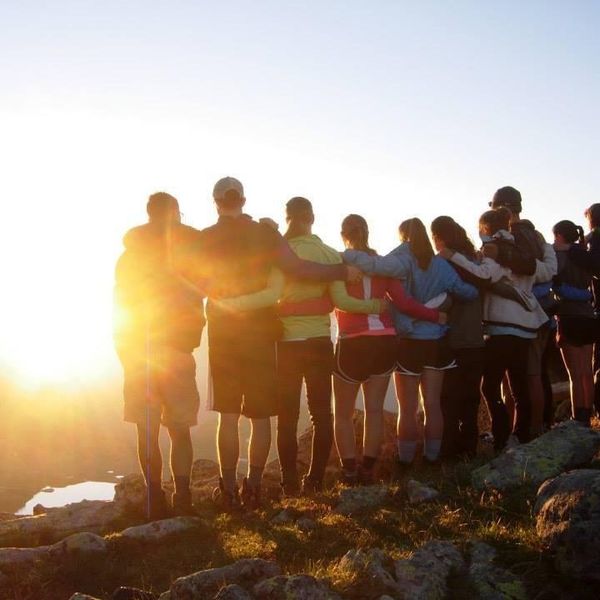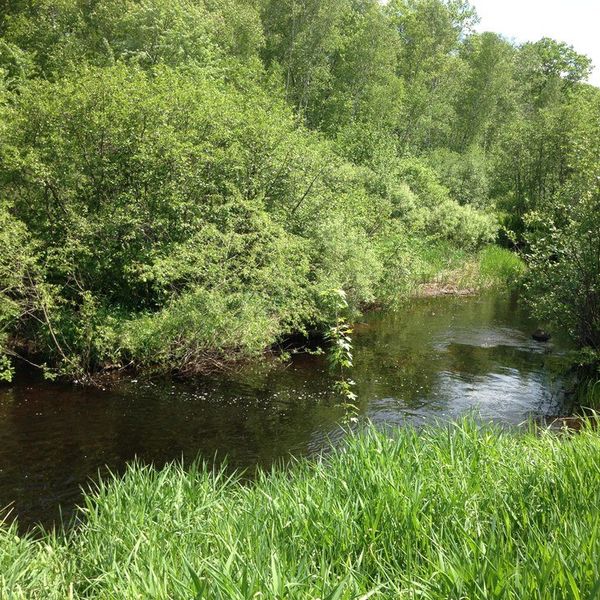Almost always the result of inadequate planning, I have had my fair share of nightmarish mountain moments. My most recent excursion into the rolling hills and breathtaking vistas of Western North Carolina left me wondering why no one in my party thought to consult a guide or a checklist before departing. Our stay was four days long and -- though I am infinitely grateful for the chance to get away at all -- had untapped potential. We ended up flying by the seats of our pants, staying in a broken down, black widow spider-infested cabin and floundering when it came to finding viable food. Luckily, the Appalachian Mountains are far less foreboding and much more forgiving than their Rocky Mountain cousins of the west. However, a trip into a foreign landscape of any kind should be planned and informed. Here are just a few of the thoughts and actions to consider before heading up the winding roads and through the kudzu-covered valleys this summer.
1. Consult the honest reviews of others before choosing lodging.
This first point cannot be stressed enough. It may seem like common sense, but some people forget this crucial decision-making step. Whether you are looking for a hotel room, cabin, campsite or some sort of other place to rest your head, online reviews will address areas that a lodging company or organization will likely not. Do not do what my family did. We failed to read reviews beforehand, picked a place that just so happened to be open (as it turns out, there is a reason it was). Even after we presented photos of black window spiders and their egg sacs attached to our mattresses, the proprietors of the cabin property refused to give us even a partial refund. Eventually -- after the bank forcing the people to return our money -- they complied. Bottom line: we wasted an entire day of our vacation sorting out this issue. That's time that could have been spent whitewater rafting or spelunking or just taking in crazy beautiful mountain scenes.
2. Pack mainly active-wear.
It may be tempting to pack your Sunday best for those breathtaking Blue Ridge Parkway photo ops, but trust me when I say, you will be much more comfortable and confident in tennis shoes and flexible workout gear. This is especially true if the main outdoor activity you are interested in is hiking. When you aren't exploring the uneven and earthy landscape, you're either tubing down a chilly stream or walking around trying to find the NOC. You'll thank me later for this one.
3. Bring a portable phone charger.
Not only is this a good idea for the often long and winding car rides through mountain roads required on these sorts of trips, but it will also serve you well if there is an emergency during your hike or if you manage to get lost. Even if you have spotty service, it is better to have a functioning phone than no phone at all.
4. Eat like a local.
There is nothing -- absolutely nothing -- more mouth-watering than local Appalachian BBQ. The hole-in-the-wall restaurants are the best places to get it.
5. Store your essentials in the trunk of your car.
This one is twofold. One reason for stowing your valuables in the trunk is so that sketchy people have a more difficult time breaking into your car. If it's going to happen (which it likely won't...but might), then you can at least minimize the impact this way. Another reason for keeping your essentials (spare change of clothing, hygienic items, purse, etc.) tucked away in the trunk is so that if -- for example -- you decide to go on an impromptu waterfall hike, you are always prepared.
6. Research hidden gems in the destination area.
One of the best ways to go about doing this is going to websites inhabited mostly by locals or calling hotels in the destination area for advice. The people who administrate these resources are almost always more than happy to help you plan your trip. With that being said, steer clear of obvious tourist traps such as "gem-mining" kiosks on the side of the road and shops claiming and failing to sell 100 percent handmade, local goods.
7. Bring more types of clothing than you think you need.
Every time I go to the mountains and step out of the car, I am shocked anew by the drastic temperature drop. Typically, during the summer, conditions are relatively warm and balmy. However, once the sun begins to duck behind the mountaintops, there is an immediate chill in the air that can be felt from nightfall until dawn. For this reason, you will need to pack pants as well as shorts, long sleeves as well as short sleeves and so on.
8. Plan for at least one water sport.
Hiking is awesome, but water sports in the Appalachian Mountains are special. There's whitewater rafting, whitewater tubing, using "ducky" kayaks, paddle boarding and more. There's just something immensely thrilling about bumping down a dangerously rocky, but at times, leisurely natural river.
9. Don't panic.
I made the mistake of letting a negative past experience tubing influence my most recent tubing excursion. As a result, I panicked all the way down the river and did not really have a great time. The first time I had ever gone tubing, I fell out of my tube in a class two rapid and kept going down the river. Not sure what to do in a situation like that, I freaked out and put my feet down in an effort to touch the bottom. Of course, that was the wrong choice -- I busted my ankle pretty badly on a craggy rock. Even though my most recent tubing experience was hardly a thrill ride, I let unreasonable panic control me due to an event from the past. In the context of any vacation -- but especially an Appalachian one -- it is important to just ignore certain risks and channel your inner child. Just have fun. You won't regret it.
10. Bring bottled water and snacks.
You're going to get hungry out there. This is especially true in the context of hiking; many moderate and strenuous Appalachian hikes take up to an entire day to conquer. It is essential to stay hydrated, full and nutritionally balanced even when dangling from the side of a mountain. It can sometimes be tough to find a conveniently located grocery store in the mountains, so stock up on your snacks before departing. Clif "Builder" Bars are one of my favorite snack choices, but jerky sticks, fruit cups, cookies, canned soup, trail mix and cheese sticks are always appropriate. Sporting goods stores also sell dehydrated "camp" meals that work well on the go (especially for extended hikes and backpacking trips).
Though there are many points to remember when planning a trip to the east coast's most beautiful and exciting region, the most important overarching goal of an Appalachian summer vacation is to have a blast and not waste time struggling with the consequences of poor planning.





















